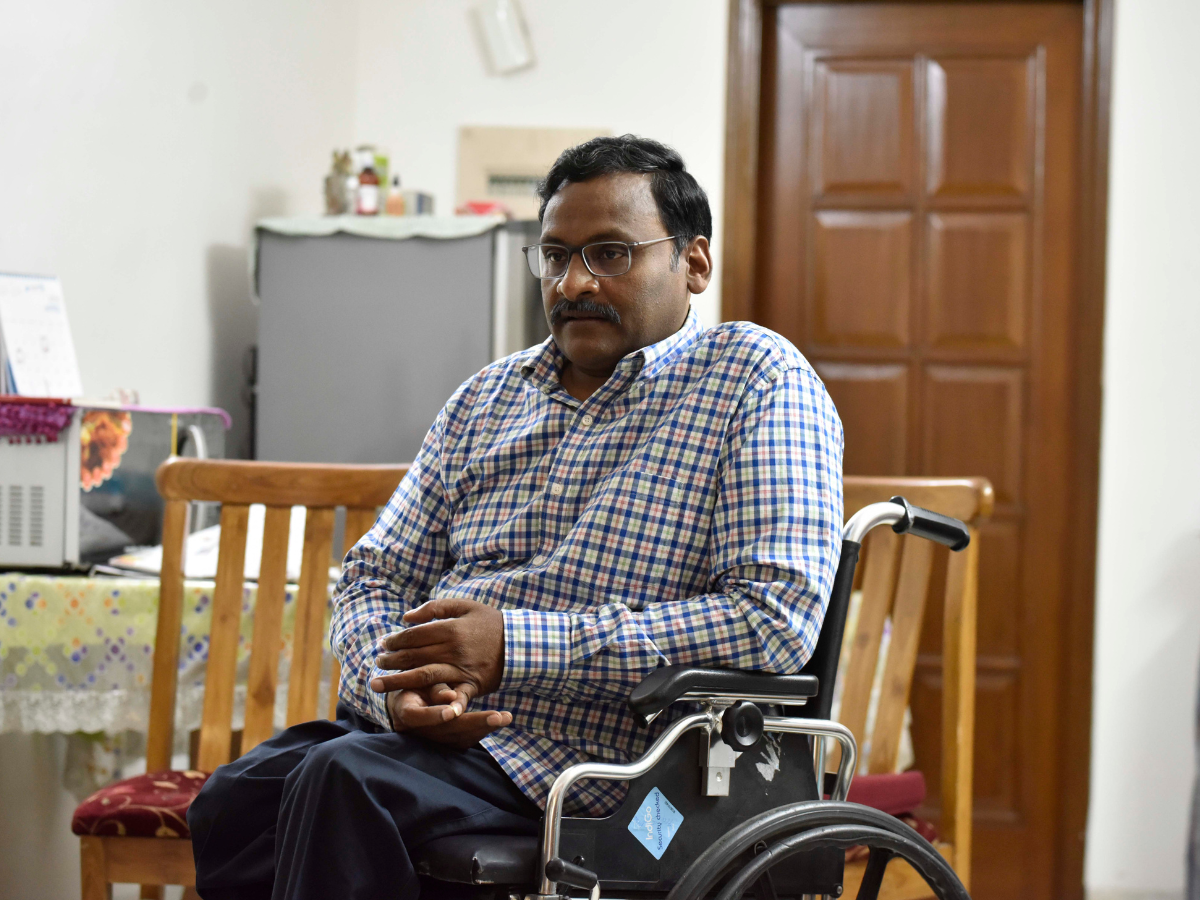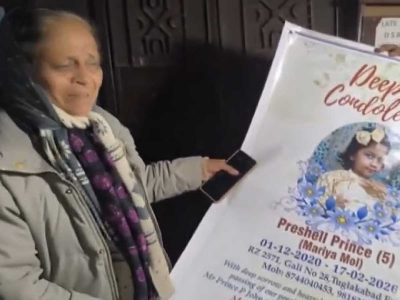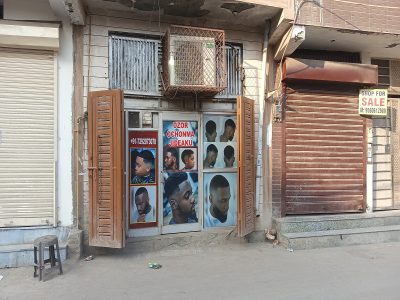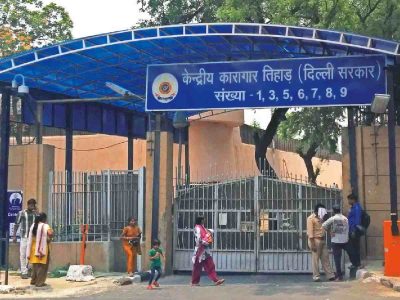“Except for the polio that I’ve had since my childhood, I went to jail without any health issues. But today, I am in front of you though alive, each organ failing me,” said GN Saibaba, 59, a former Delhi University professor who was released from Nagpur Central Jail on March 7.
“My heart is functioning with 55 percent capacity. I acquired, I don’t know how, hypertrophic cardiomyopathy in a severe condition,” he said. “The left part of the heart at 55 percent. Doctors say ‘if it drops by a few percent, you will not survive’. I am facing syncope attacks. I fall unconscious.”
Saibaba, who has 90 percent physical disabilities and uses a wheelchair, said he was given no treatment for these issues.
The former professor revealed the distressing details while addressing a press conference at New Delhi’s HKS Surjeet Bhawan on March 8, a day after his release. Others in the panel included Communist Party of India general secretary D Raja, Delhi University professors Nandita Narayan and Karen Gabriel, National Platform for the Rights of the Disabled general secretary Muralidharan, and Saibaba’s co-accused Hem Mishra.
Saibaba was first arrested along with five others in 2014 on charges of purported links with Maoists. He got bail only to be jailed again twice, until a trial court in Gadchiroli convicted him in 2017 under the draconian Unlawful Activities (Prevention) Act. The Bombay High Court set aside his conviction in 2022 but the Supreme Court stayed the decision.
Finally, on March 5, the Nagpur bench of the Bombay High Court acquitted Saibaba and five others of all charges. The court said the prosecution had failed to prove the allegations against them and that due process was not followed.
At the press conference, Saibaba narrated the harrowing conditions he survived in jail, from being kept in an “anda cell” to lack of accessibility to being denied life-saving medicines by jail authorities. He said only “some medical tests” were conducted during his incarceration and that he was given “only painkillers” for treatment.
His story is not an isolated one. During the interaction, he shed light on the pervasive medical negligence within India’s prisons, citing the case of his co-accused Pandu Pora Narote, who died in August 2022 while in custody.
“He died in front of my eyes,” Saibaba said of Narote. “Despite many reminders, he was not taken to the hospital till the last moment when he was bleeding profusely from his eyes and in his urine. He was taken to the hospital after prisoners raised their voices. He was killed. It was murder.”
He also brought up Surendra Gadling, a lawyer who defended him in the trial court and is presently incarcerated in the Elgar Parishad case.
“Gadling has developed a serious heart condition and recently fell unconscious,” he said. “Recently, medicines were denied to Gadling. Life-saving drugs prescribed by the government hospital were denied. When the family sent the medicines, it went missing. The same things happened to me, but I don’t know how I survived.”
A decade of negligence and disregard
Saibaba told assembled reporters that his “entire nervous system” had broken down after he was “manhandled” and “dragged” in police custody.
“My left hand is still swollen after 10 years as the police dragged me with my left hand. But no treatment was given…So it is still swollen like this. For nine months I suffered…during the trial period. And after nine months, when I was taken to the hospital, it was too late and doctors said they can’t revive the nervous system and muscles now,” he said.
He has shooting pain and muscle spasms from his left hand to his left leg, but he said a doctor was never summoned. “I would not be taken to the doctor just across the anda cell,” he said. Saibaba has gallbladder stones and acute chronic pancreatitis due to the food served in prison, as well as “cysts in my brain” and “cysts in my kidneys”.
Despite doctors prescribing numerous courses of action, Saibaba alleged the jail authorities ignored their medical advice. For instance, one doctor prescribed whole-time monitoring of the heart but this was not conducted at all. Authorities also did not follow a doctor’s suggestion to conduct “surgical repair” for Saibaba’s nerves and muscles to alleviate pain and enhance his hand functionality.
“Another doctor prescribed a sleeptopia test saying I cannot sleep properly. It was prescribed seven years ago and the test was never conducted,” he said.
Saibaba said he was only permitted to access medicine sent by his family after a 10-day hunger strike. Even then, the medicines took “10 to 15 days” to reach him.
However, it was the refusal of parole to bid farewell to his dying mother that truly encapsulates the depths of Saibaba’s despair. Overcome with emotion, he explained what it meant to have been unable to say goodbye to her.
“My mother passed away when I was in prison in 2020. Being a disabled child, my mother brought me up with great care,” he said. “…She took me in her arms to school…I was not allowed to see her before her death. I was denied parole to go see her. After that, I was denied to attend her funeral. I was denied parole to attend the post-funeral functions or rites. Who is the criminal in this country who is denied these kinds of rites?”
‘Reinstate Saibaba in DU’
Later in the press conference, Delhi University professors Narayan and Gabriel brought up Saibaba’s termination from his job as an assistant professor at the English department of Ram Lal College. The college suspended Saibaba in 2017. On March 31, 2021, it sent his wife a memorandum terminating his service with immediate effect.
Narayan called it “unfair”. “Our first demand is to reinstate him in his job and ensure that he gets full compensation,” she said. “We also demand that Pandu Pora Narote’s family get full compensation. And there should be action against those who put fake charges because they are responsible for the devastation of so many families.”
The Committee for the Defence and Release of Dr GN Saibaba – which comprises lawyers, academicians, and Left politicians – has also called for Saibaba’s reinstatement at Ram Lal College, compensation to Narote’s family, compensation to those falsely incarcerated for 10 years, and that the Supreme Court uphold the high court’s acquittal order.
Hem Mishra, the JNU student arrested in the same case in 2013, told the media that during his time in jail, he drew strength from protests in India by farmers, women and students, as well as other social justice movements.
But he said his celebration of his release is incomplete without the release of other political prisoners languishing in jail.
“All political prisoners who have been held in the jails of this subcontinent for years, unable to secure their release due to lack of legal aid and other reasons, must also be freed,” he said. “Without their release, ours is an incomplete liberation.”
This article was first published by Newslaundry on March 9





